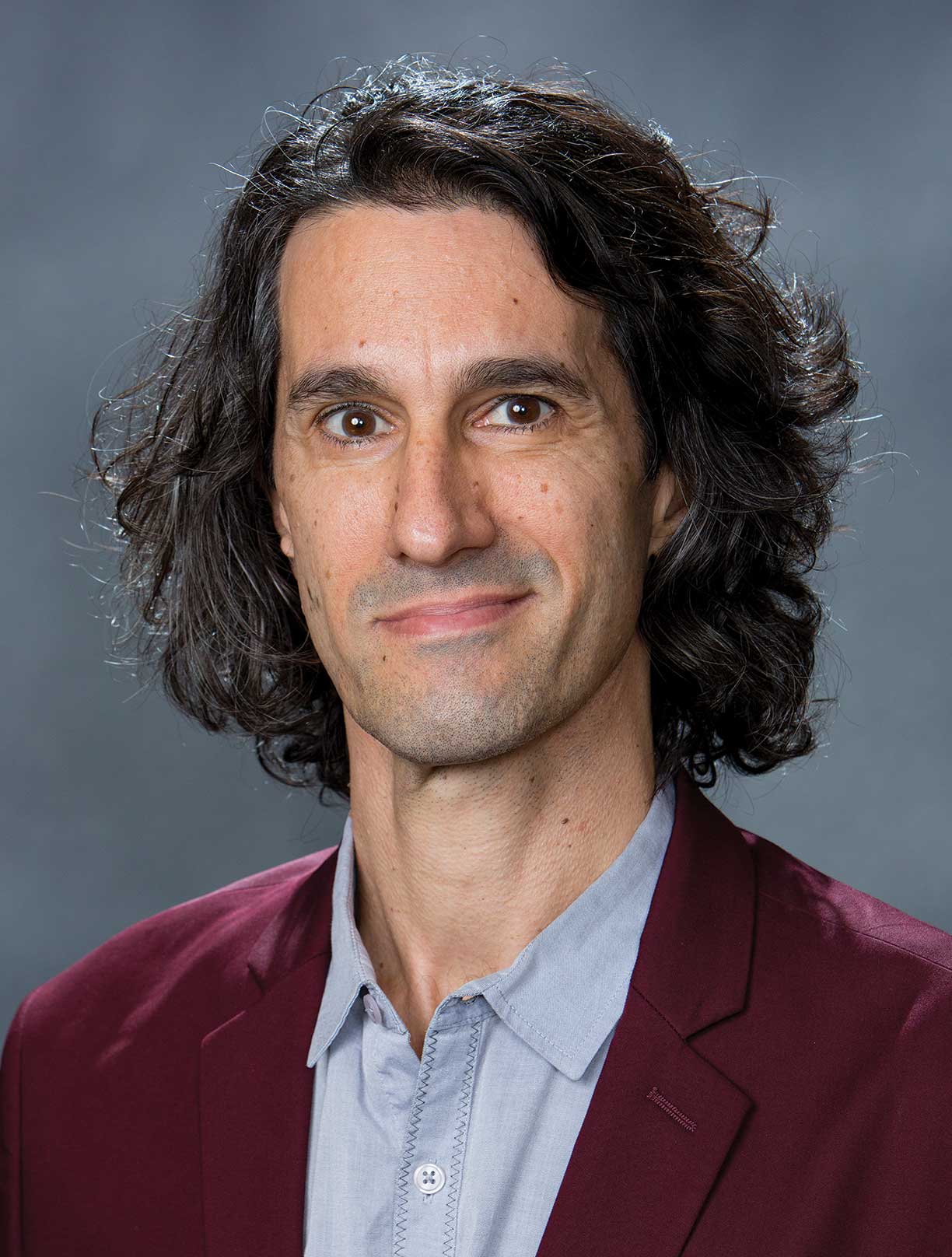Q&A: Agustín Fuentes on the Pandemic and Human Connection
‘Humans have evolved over hundreds of thousands of years in concert with others’
Social connection is an essential element of human life, and the pandemic disrupted those bonds in profound ways, says anthropology professor Agustín Fuentes, who joined the Princeton faculty in 2020. He studies the intersection of biology with the social and cultural lives of humans. In his 2012 book, Race, Monogamy, and Other Lies They Told You: Busting Myths About Human Nature (an updated version will be issued next year), he uses scientific evidence to refute misconceptions about humanity. Academics, he says, “have a moral and ethical responsibility to make our research accessible for people outside the academy.” Fuentes spoke to PAW about insights from his research, including the physical toll of the pandemic and the myths about human aggression that linger in our collective imaginations.
What has been the biggest effect of the pandemic from a social and cultural standpoint?
It’s important not to disentangle the biological from the cultural from the social from the psychological. The sense of isolation, of being cut off from others, not being able to hug and touch and hang out — those are critical things. We know from studies that being together, holding hands, even fighting — but doing so in person — forms a central basis of what it means to be human. Being denied those opportunities puts an incredible stress not just on our mind, but actually changes our biologies and how they respond to the world. Humans have evolved over hundreds of thousands of years in concert with others, and so does each person from birth. Everything — our taste and smell and sight, the way we hear things, the way we move — those are co-constructed and shaped by being with other people as we develop.
So being apart takes not just a mental toll, but also a physical one?
Yes. Our physiological processes, ranging from sleep cycles to digestion, are thrown off. That changes how our bodies function and how we feel. When we feel down, it’s not only because we’re bummed out psychologically; it can be because our body is responding to the situation. That stress is serious, and it’s going to have long-term repercussions.
What about substitutes for in-person contact such as Zoom? Do they help us replace the personal contact we used to have?
Zoom is really hard on us because we’re 4D organisms, and Zoom constrains us to two dimensions and messes with our sense of time and place. We miss more than half the information we are normally taking in during a conversation. When I lecture on Zoom, I can’t read the room. Zoom can be greatly beneficial — it can bring people together from around the planet — but it’s just not a replacement for being in person.
One myth you address is that humans are naturally aggressive.
Human nature is not aggressive, period. The data are robust. Humans can be violent — it is one way we navigate the world, but it’s not the dominant one. They have always shared food and knowledge, taught one another to engage with challenges. Humans have a deep capacity for cooperation, but they need the societal, economic, and infrastructural context where it is allowed to flourish.
So collaboration is actually more intrinsic to human nature?
Yes. When you go to a movie theater, what do you do? You get in line. Do people tell you to get in line? No. Maybe a few people cut the line, but that’s not the average. When someone is hurt, people run to help. If you look throughout human history, the examples of collaboration outweigh the examples of conflict. It is not that aggression and conflict aren’t important, but when you are part of a society or a social group, empathy and compassion need to lead. If they don’t, the group doesn’t work and won’t last.
In your most recent book, Why We Believe: Evolution and the Human Way of Being, you argue that our ability to commit passionately to an idea is central to humanity.
Our daily lives are structured around beliefs, and many only work if everyone believes in them. Think of a $20 bill. By itself it has no inherent value. It is part of an economic system that we created and believe in. The really amazing thing about humans is that we see what is and imagine wholly new possibilities. And then we try to make them possible. That is belief.
Interview conducted and condensed by Jennifer Altmann










No responses yet